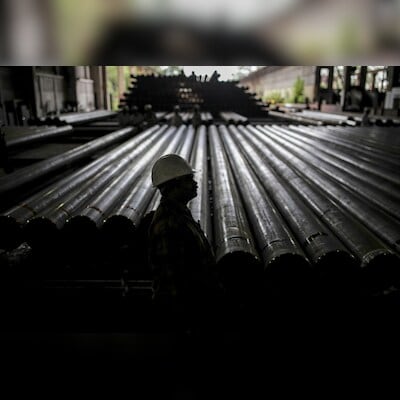Rating agency ICRA has predicted a challenge for the domestic steel industry in the form of new mining tax to be levied by some states, following the recent Supreme Court ruling empowering states to levy taxes on mineral rights and mineral-producing lands.
ICRA said the development was set to compress operating margins across the sector, impacting both primary and secondary steel producers.
“As per ICRA estimates, margins of primary steel producers could be reduced by around 60-180 basis points, while secondary producers, with already lower profitability, may face a more severe impact, with margin declines ranging between 80 and 250 basis points, under various scenarios where duty rates could potentially vary between 5 per cent and 15 per cent,” the note said.
The power sector, which is heavily dependent on coal, could see an increase in supply cost of between 0.6 per cent and 1.5 per cent, which could lead to higher retail tariffs, ICRA said.
In addition, primary aluminium producers are also expected to be affected due to their high energy consumption.
Girishkumar Kadam, Senior Vice President and Head of Corporate Sector Ratings Group, ICRA, said, “Implementation of the new mining tax by major mineral-rich states may increase cost pressures for the steel industry. While most states are yet to set the rates, any substantial tax implemented could adversely impact margins, especially for secondary steel producers, as merchant miners are expected to pass on the higher costs. Accordingly, the implementation strategies adopted by the various state governments will be crucial in shaping the competitive landscape of the steel industry.”
The focus is on Odisha, which accounts for more than 40 per cent of the total value of minerals produced in the country.
Odisha had introduced the Orissa Rural Infrastructure and Socio-Economic Development Act, 2004 (ORISED Act), which allows a 15 per cent tax on iron ore and coal.
If fully implemented, it could result in an 11 per cent increase in iron ore landed costs, which would directly impact the cost competitiveness of domestic steel entities, ICRA said.
In a similar move, the Jharkhand government also recently imposed a hike of Rs 100 per tonne on iron ore and coal. ICRA believes this could set a precedent that other states could follow.
“This increase is expected to have a minimal impact on steel entities’ operating margins, reducing them by around 30 to 40 basis points. Even if other states adopt similar measures, the overall impact will likely remain modest,” the rating agency said.
“If the tax is applied retrospectively, it could increase financial pressure on steel companies. However, the Supreme Court’s order of staggered payments over 12 years starting April 1, 2026, without interest or penalties for past claims, offers some financial relief,” Kadam said.
The ripple effects of the ruling are likely to be felt beyond the steel sector. The energy sector, which relies heavily on coal, could see an increase in the cost of supply, which could lead to higher retail tariffs.
ICRA expects primary aluminium producers to also be affected due to their high energy consumption, with costs potentially rising by about Rs 1,200-1,300 per tonne ($15-$16 per tonne), assuming a 15 per cent duty, which represents 0.6 per cent of current aluminium prices.
First published: August 26, 2024 | 16:39 IS
Disclaimer:
The information contained in this post is for general information purposes only. We make no representations or warranties of any kind, express or implied, about the completeness, accuracy, reliability, suitability or availability with respect to the website or the information, products, services, or related graphics contained on the post for any purpose.
We respect the intellectual property rights of content creators. If you are the owner of any material featured on our website and have concerns about its use, please contact us. We are committed to addressing any copyright issues promptly and will remove any material within 2 days of receiving a request from the rightful owner.

